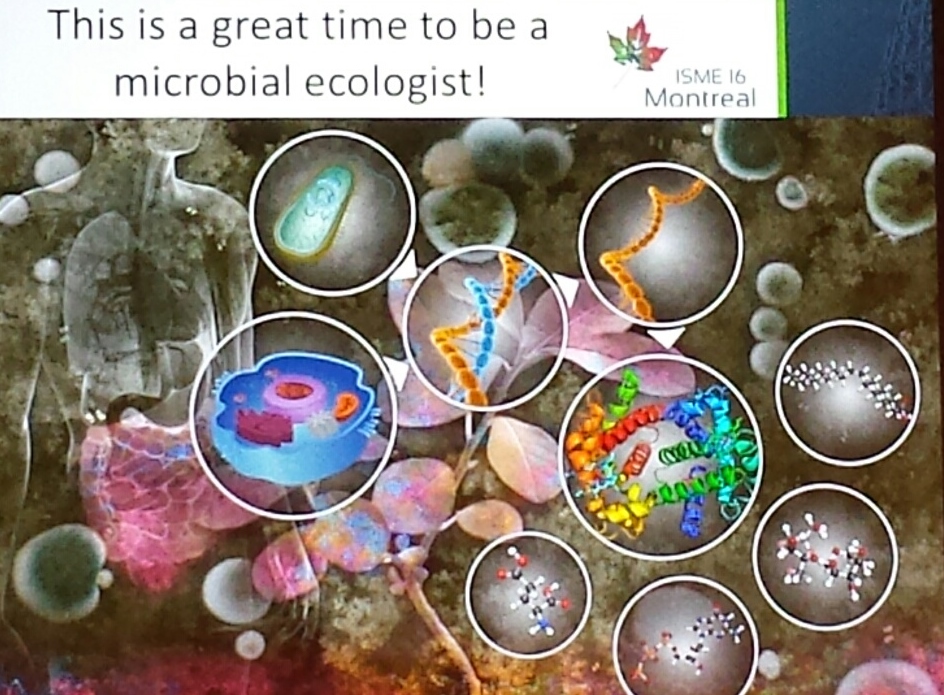This year marked the first Human and Environmental Microbiome Symposium organized by the Duke Center for Genomics of Microbial Systems (GeMS). Both the Johnson Lab and the Hunt Lab traveled to the Durham campus to present research concerning marine microbes, and to learn about other microbial research going on in the Triangle area. Keynote speakers included Dr. Noah Fierer of the University of Colorado at Boulder, and Dr. Julie Segre of the National Human Genome Research Institute. Dr. Fierer’s talk explored the distribution of bacteria and fungi in both indoor and outdoor environments across the United States, using samples collected by volunteers across the country. He showed a bicoastal distribution of outdoor bacterial and fungal community types, and explained that the top predictors of indoor household bacteria communities are the presence of a dog and/or cat, and the gender ratio of people living in the home.
Johnson Lab PhD student Alyse Larkin presented her research from POWOW cruises in a poster, “Prochlorococcus has seasonal-specific trends in alpha- and beta-diversity across latitudinal temperature gradients in the North Pacific.” Dr. Dana Hunt gave a presentation about the PICO project titled “Microbial community and population dynamics at a temperate, coastal time series,” and Hunt Lab PhD student Chris Ward presented his research in a poster titled “Restructuring of a coastal microbial community by episodic disturbances.” Congratulations to PhD student Charmaine Yung of the Hunt Lab for winning a prize for her poster, “Temporal dynamics of microbial communities in marine microenvironments.”
GeMS also organizes weekly seminars and monthly lunches, which DUML PhD students take advantage of through videoconferencing.




